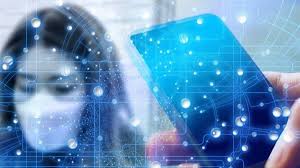Technology has its way everywhere and in every field. As we are dealing with the COVID-19 pandemic, technology has played an indispensable part in the response system as Contact Tracing has been used worldwide to find out suspected people for the virus, accelerate the testing progress and ultimately help in flattening the curve of coronavirus. The use of contact tracing has led to a better response in countries, especially those with a good digital infrastructure, like South Korea. One debate, though, that has been raised as regard to the use of contact tracing in this time, is whether they violate the privacy of an individual or not but South Korea has been able to use contact tracing technology in compliance with Personal Data Security Laws of the country, which are very much existent.

Now, first and foremost thing maybe is the seemingly ever-changing and different versions of the definition of Personal Data and what comes under that category, especially in a pandemic situation. Also, the personal data security laws govern but do not prohibit the use of contact tracing which is complemented by the invocation of a law which allows the use of such methods during a health emergency or pandemic. But one thing is understandable is that the thing that differentiates the compliance with data security laws is how the each country in the world uses contact tracing because the certain ideal is to maintain personal data security but also use contact tracing at the same time to its potential so as to speed up the COVID-19 response. The use of contact tracing, regardless they are widely supported or not, has become a debate on ethical and legal grounds with very diverse opinions about the same. One thing viable in this situation can be the use of analytics which probably does not give people much access to the personal data, if any, collected in the contact tracing process.
Innovation has come to the forefront too. Google and Apple, who don't usually work together, are developing and constantly improving coming up with a protocol or rather a method called the Track-and-Trace Technology which is essentially an Application Programming Interface (API) which will use different tools like Google Maps, Bluetooth signals, etc. without collecting any identifying information about an individual. Very few Covid-19 tracking apps are out in the wild yet, but the features that Apple and Google have worked on are now live. Regardless of the implications of contact tracing, public support will determine whether its justified or not as it will be challenging to reach the levels of widespread adoption and regular use needed for contact tracing technology or apps to be effective.
At present, there is no privacy law specifically addressing the use of contact tracing in context of the pandemic the world is facing right now. If there is any data collection through mobile apps, there should be emphasis on transparency and control, including just-in-time disclosures to consumers. As aforementioned, public support is crucial and therefore the required consent must be obtained if there is a need to access sensitive individual content during the contact tracing process. But at the end of the day, one thing must be kept in mind, that being, contact tracing is the need of the hour during this pandemic but at the same time, the Right to Privacy of individuals must be respected and upheld as well.